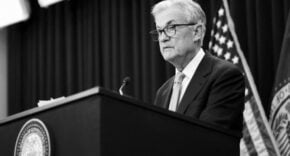Culture warrior Ron DeSantis, the Republican governor of Florida, is laying the groundwork for a 2024 presidential bid. That includes a new manifesto against the way corporate America tries to navigate shifting attitudes on race, gender, climate change, and other issues pitting those who want power against those who have it.
DeSantis has been waging a very public war with the Walt Disney Company (DIS) that now looks like a template for a broader crusade against companies practicing “woke capitalism,” as DeSantis and other conservatives put it.
“The left has pressured big corporations like Disney to use their enormous power to advance woke political ends,” DeSantis writes in his new book, “The Courage to be Free,” which The Wall Street Journal excerpted on March 1. “There is little upside for big companies to take positions on contentious political issues.”
Republicans fed up with former President Donald Trump’s antics think DeSantis could be their nominee in 2024. His book became an instant bestseller, and DeSantis won reelection to the governor’s mansion last year in a rout, establishing strong momentum should he run for president. He’s also a military veteran with a Harvard law degree who’s only 44 and could bring the generational power shift many voters crave.
But DeSantis is badly misreading corporate America and, by extension, the convulsive societal forces CEOs are grappling with. The CEOs that DeSantis dings aren’t craven tools of the left or rudderless weather vanes. Big brand-name companies sometimes have no choice but to take a stand on controversial issues, because large blocs of their customers and employees want them to. They mess up sometimes, but as an alternative, staying silent or doing nothing is often worse.
Florida Gov. Ron DeSantis at Palm Beach Atlantic University in West Palm Beach, Fla. (AP Photo/Wilfredo Lee, File)
‘The target was purely political’
The Disney flap arose over a 2022 Florida law that limited what schools can teach young kids about sex and gender issues. Opponents dubbed the measure the “Don’t say gay” law and pressured Florida companies to lobby against it. Disney initially took no stance that angered some Disney employees, who staged walkouts and other types of protests. The CEO at the time, Bob Chapek, then apologized for the company’s silence and said Disney would work to overturn the bill.
[Follow Rick Newman on Twitter, sign up for his newsletter or drop him a note.]
That angered DeSantis, who worked with the state legislature to revoke a special self-governing status Disney has enjoyed near its Disney World theme park since 1967. Instead of managing its own municipal affairs, Disney will now have to answer to a five-person board staffed with DeSantis allies. DeSantis characterizes the move as the long overdue end of a corporate boondoggle, yet it reeks of political retribution.
“People ask us: Was there any merit behind this? Was Disney deficient?” says David Kotok, chairman of investing firm Cumberland Advisors, which is based in Sarasota. “When we do the research, there is no merit financially or in a business context for the attack on Disney. Disney is a huge employer, a model citizen, it attracts huge economic interests to Florida. Why attack a model corporate citizen? The target was purely political.”
DeSantis argues that small cadres of “loud and militant” liberals are driving companies like Disney to embrace radical issues most Americans disagree with. He extends this to ESG investing and has taken new steps to prohibit any consideration of environmental, social, and governmental factors for the investors managing Florida’s pension money.
This is another area where DeSantis goes awry: by dismissing substantial shifts in public opinion on hot-button issues as mere manipulation by liberal activists. Those shifts are much deeper. The Florida education bill, for instance, is pushback against new efforts to normalize LGBTQ representation in public education. A company such as Disney needs to think not just about its employees, but about customers, suppliers, partners, and everybody else it does business with.
Visitors pose for photos with the cartoon character Tigger during the Lunar New Year celebrations at Disney’s California Adventure Park in Anaheim, the United States, on Jan. 21, 2022. (Photo by Zeng Hui/Xinhua via Getty Images)
If Disney’s customer base reflects the overall population, then around 7% of them identify as LGBTQ. More than that, public attitudes are clearly liberalizing over time. More than 71% of Americans, for instance, think same-sex marriage should be valid, according to Gallup polling, up from just 27% in 1996.
As society evolves, companies need to update their policies to keep up. That’s not “wokeism” — it’s sensible business. And it’s inevitable that there will be uncomfortable moments when cultures clash and companies get tangled in fights they’d rather avoid because they end up alienating somebody.
Members of the National Rifle Association, for instance, tried to boycott Delta Air Lines a few years ago when it ended an NRA discount in the aftermath of a mass shooting. The flap blew over. Most of the time, the best way for a company to navigate cultural minefields is to take a principled stand that will endure the test of time. You can’t please everybody, yet people respect resolve.
‘Make America Florida’?
Republicans in general are testing the war on “woke capitalism” as a bedrock theme of their 2024 electoral efforts. While the terms “woke” and “antiwoke” are vague, so-called ESG investing is a more tangible target because some adherents call for disinvesting in fossil-fuel companies and others with a big carbon footprint or other demerits.
But again, it’s a mistake to assume this is some goofy liberal plot. Polls show Americans generally support the goals of ESG investing, even if they don’t feel strongly that investment portfolios are the right tool. Solid majorities of Americans favor more action to combat climate change. Young voters are most passionate about the issues fueling ESG investing.
Guess who obsesses about the coveted 18-to-34 demographic? Consumer companies that want to capture young spenders as they’re forming their values, and make them customers for life. This is a much more powerful motivator for companies than any political agenda, liberal or otherwise. Ambitious politicians aiming for a long career might even learn something from successful companies that align with the values of people they aim to convert into customers.
The last chapter of DeSantis’s book is titled, “Make America Florida.” That’s pretty clever. It’s a variation on Donald Trump’s “Make America Great Again” that’s meant to highlight Florida’s booming economic growth and a lifestyle that has made the Sunshine State a top target for relocators. You may hear that in 2024 as a DeSantis campaign slogan.
New College of Florida student Fatima Ismatulla speaks during a rally at the New College of Florida, where students staged a walkout from the public liberal arts college to protest against a proposed wide-reaching legislation that would ban gender studies majors and diversity programs at Florida universities, in Sarasota, Florida, U.S. February 28, 2023. REUTERS/Octavio Jones
But how many Americans want to be Florida-fied? Probably a lot fewer than DeSantis thinks. Even some Florida Republicans don’t love DeSantis’s war on business. Billionaire Ken Griffin is a DeSantis supporter who moved both his hedge fund Citadel and his market making firm Citadel Securities from Chicago to Miami last year. He agrees with the “don’t say gay” legislation, but he objects to DeSantis’s heavy-handed tactics against Disney.
“I don’t appreciate Governor DeSantis going after Disney’s tax status,” Griffin said last year. “It can be portrayed, or feel, or look like retaliation.”
Swing voters crucial to winning national elections don’t seem especially interested in wokeism, either for or against it. In focus groups with swing voters in DeSantis’s own state, research firm Engagious mostly evoked yawns on the topic of wokeism, with some respondents interpreting DeSantis’s attacks on business as his own effort to rouse extremists on the right.
“He has clearly tapped into sentiment on the right that is profound,” says Rich Thau, president of Engagious. “But it doesn’t seem to have much traction with swing voters.”
DeSantis may also be undermining the type of support Republicans typically get from businesspeople who favor low taxes and gentle regulation.
“I have Republican friends who are disillusioned with what’s happening in Florida,” says Kotok of Cumberland Advisors. “I’m worried on the business side because I know businesses that are reexamining their investments in Florida and looking at other locations because they don’t like what they see here.”
Maybe DeSantis’s Florida should be a little more like the rest of America.
Source: https://finance.yahoo.com/news/how-ron-desantis-misreads-corporate-america-134335019.html










